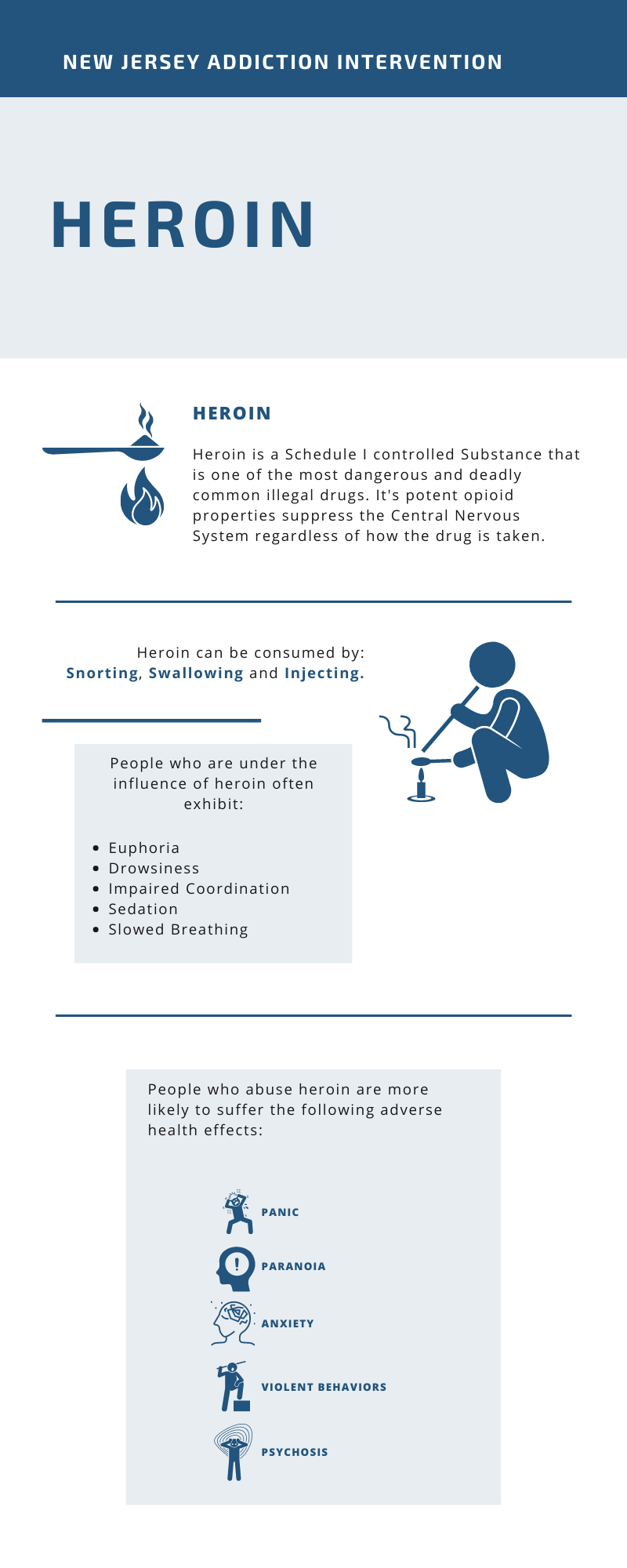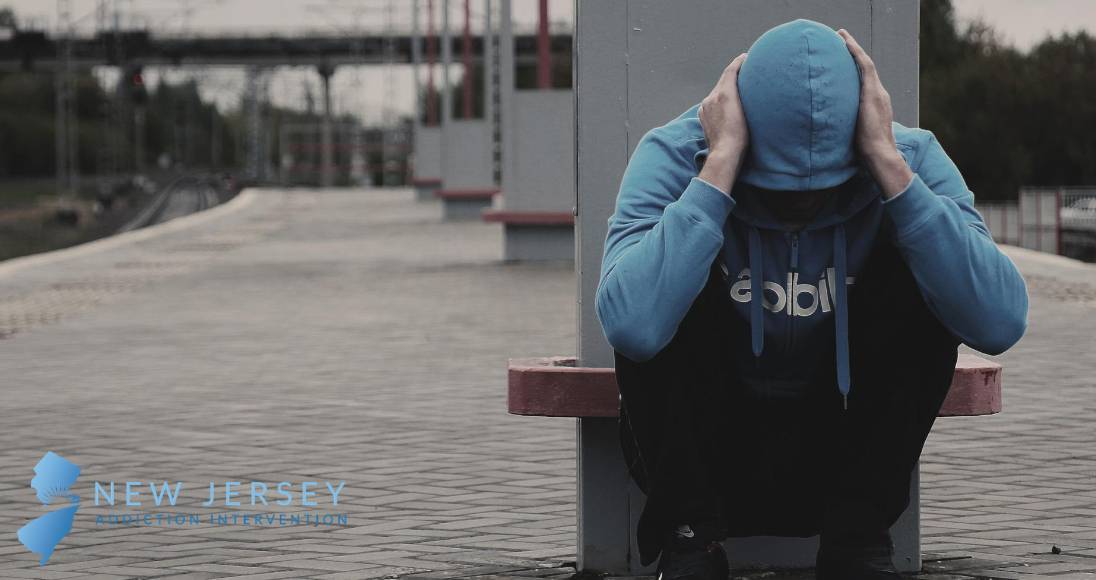Amid a nationwide opioid epidemic, heroin addiction is the most common drug threat to New Jersey. The drug carries a high demand at a low monetary cost, making it widely available everywhere from New York City to the heart of Philadelphia. The number of roadways that connect the populous tri-state area is known for a massive flow of South American heroin. Similarly, the busy coastal ports make New Jersey extremely vulnerable to drug trafficking. As a result, it’s safe to say that there is no shortage of heroin in the area. Instead, there is a surplus of people suffering from heroin addiction.
Heroin Addiction in New Jersey
While heroin is a major problem across the United States, some areas have been hit harder than others. In 2018, nearly 90% of New Jersey’s 2,900 drug overdose deaths involved the use of opioids.[1] This number is significantly higher than the national average, as approximately 69.5% of nationwide drug overdose deaths involve opioids. In addition, more than 45% of all addiction treatment center admissions in the state are a result of heroin abuse.[2] This means nearly 39,000 people sought drug rehab in New Jersey for heroin addiction in just one year.
In order to combat this crisis, the state has taken unprecedented steps to increase the availability of Naloxone (Narcan), a life-saving and opioid-overdose reversing medication. In 2019 alone, Naloxone was administered by Emergency Medical Services 14,680 times in New Jersey.[3] Lastly, nearly 59% of all drug-related hospital visits in 2017 were because of heroin toxicity, side effects, or dependency.[4]

Signs and Symptoms of Heroin Addiction
Heroin addiction is scary and life-threatening. People who abuse heroin will develop a tolerance where they need to use more of the drug to get high. In addition, heroin is increasingly being mixed with more potent opioids, such as fentanyl, so it is impossible for users to know exactly what they are buying. As a result, an overdose is a real possibility. That’s why it is so important to be able to recognize the signs and symptoms of heroin addiction.
Signs of heroin abuse and addiction include:
- Drug paraphernalia like straws, needles, spoons, etc. is found in the home or in personal belongings
- Experiencing withdrawal symptoms when cutting back or stopping the use of heroin
- Constricted pupils, flushed skin, slowed reaction times, itching excessively, and “nodding off” or falling asleep suddenly
- Lying to friends and family about drug use and behaviors
- Neglecting existing responsibilities
- Spending a lot of time obtaining the drug, using it, and recovering from the effects of it
- Experiencing intense drug cravings
- Needing to use increasing amounts of the drug to get high
- Continuing to use heroin despite worsening physical or mental health issues
- Wanting to quit using the drug but being unable to do so
- Getting into trouble with the law, teaches, family members, or other positions of authority
If you or a loved one are using heroin and just can’t stop, it’s time to get help from a drug rehab near you.
Medication-Assisted Treatment
The most effective form of treatment for heroin addiction is medication-assisted treatment (MAT). This means that the afflicted individual will participate in behavioral therapy while taking FDA-approved opioid treatment medications. These medications may include Suboxone, Vivitrol, Sublocade, Subutex, or Naltrexone and are proven to have many benefits when combined with traditional therapeutic interventions.[5] Some benefits of medication-assisted treatment include:
- Reduce relapse rates and future drug or alcohol use
- Increase treatment retention rates
- Decrease rates of criminal activity among people with opioid use disorders
- Improve the patients’ ability to obtain and maintain employment
- Improve birth outcomes in women who are suffering from opioid use disorder while pregnant
- Reduce the risk of contracting HIV, hepatitis C, or other infections and illnesses associated with drug abuse
Patients may begin taking medications during heroin detox to help reduce their withdrawal symptoms. However, these medications also help suppress cravings, allowing patients to place their full attention and energy into their recovery.
In order to provide a whole-patient approach, people who seek treatment for heroin addiction in New Jersey will participate in a variety of behavioral and holistic therapies, including:
- Cognitive-behavioral therapy (CBT)
- Dialectical behavior therapy (DBT)
- Group and individual counseling
- Family therapy
- Relapse prevention and substance use education
- Yoga, meditation, or recreational therapy
- Trauma-informed care
Since MAT is most effective when patients adhere to their rehabilitation plan, federal law mandates that MAT patients must receive counseling while taking these medications.
Find a Treatment Center Near You Today
Due to the high numbers of heroin addiction in New Jersey, that also means that treatment resources are widespread. With the help of an accredited and evidence-based addiction treatment program, you can overcome heroin addiction. At New Jersey Addiction Interventions, we are dedicated to providing each and every person with a meaningful and lasting recovery. Whether you are ready to take the first step towards sobriety or have a loved one who is stuck in the grips of addiction, contact us today. We’re here to help.
References:
- https://www.drugabuse.gov/drug-topics/opioids/opioid-summaries-by-state/new-jersey-opioid-involved-deaths-related-harms
- https://nj.gov/health/populationhealth/opioid/opioid_njsams.shtml
- https://nj.gov/health/populationhealth/opioid/opioid_naloxone.shtml
- https://nj.gov/health/populationhealth/opioid/opioid_hospital.shtml
- https://www.samhsa.gov/medication-assisted-treatment/treatment
Medically Reviewed: July 27, 2020

All of the information on this page has been reviewed and verified by a certified addiction professional.

